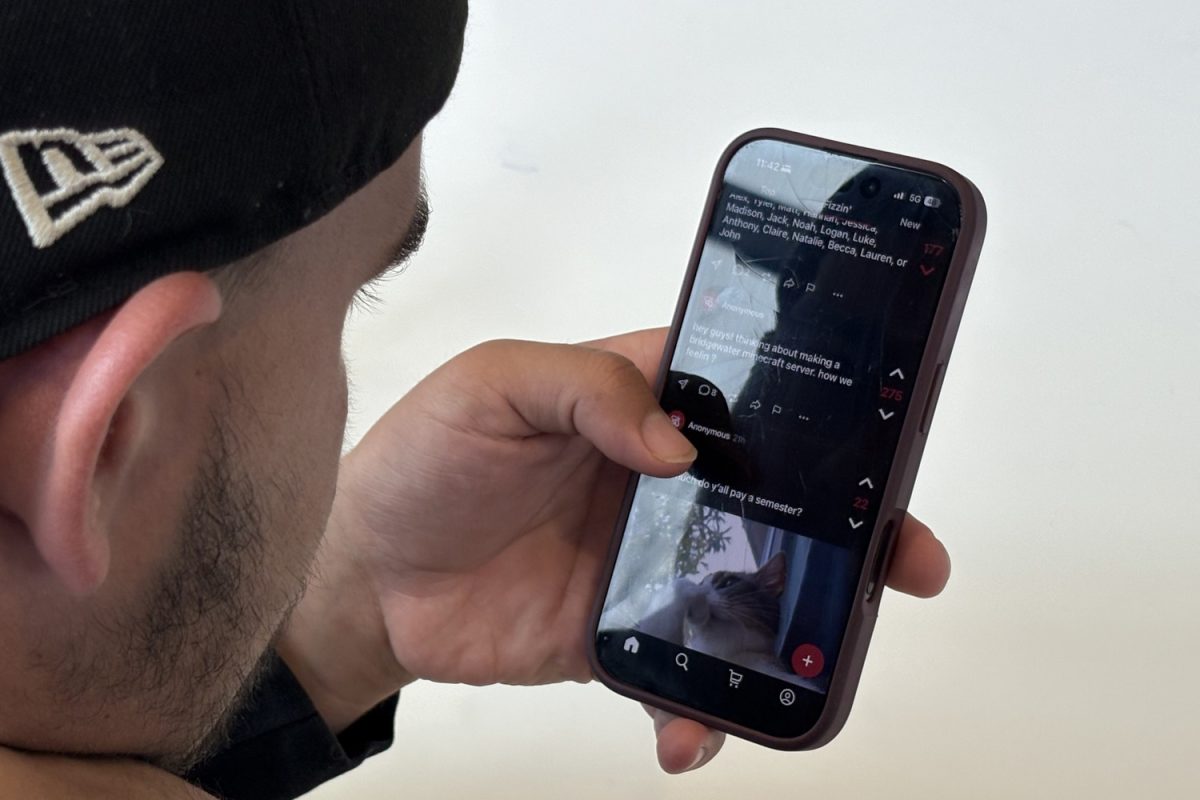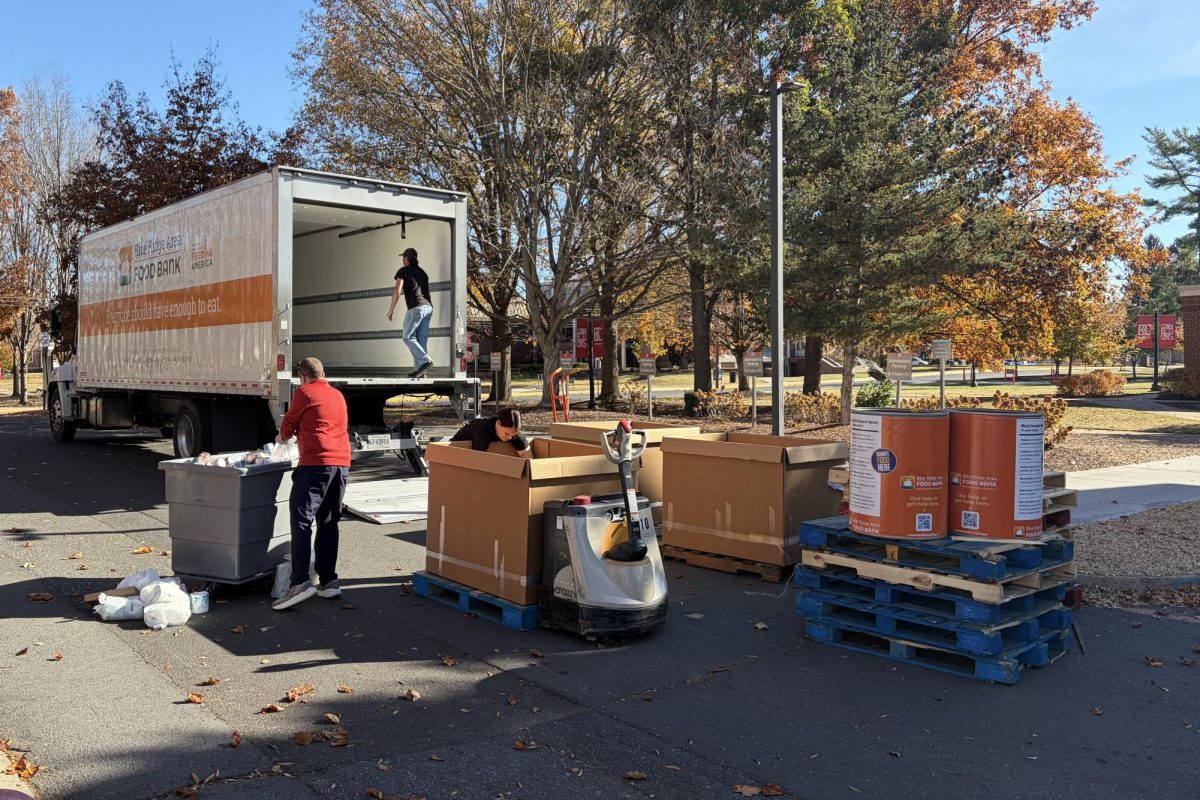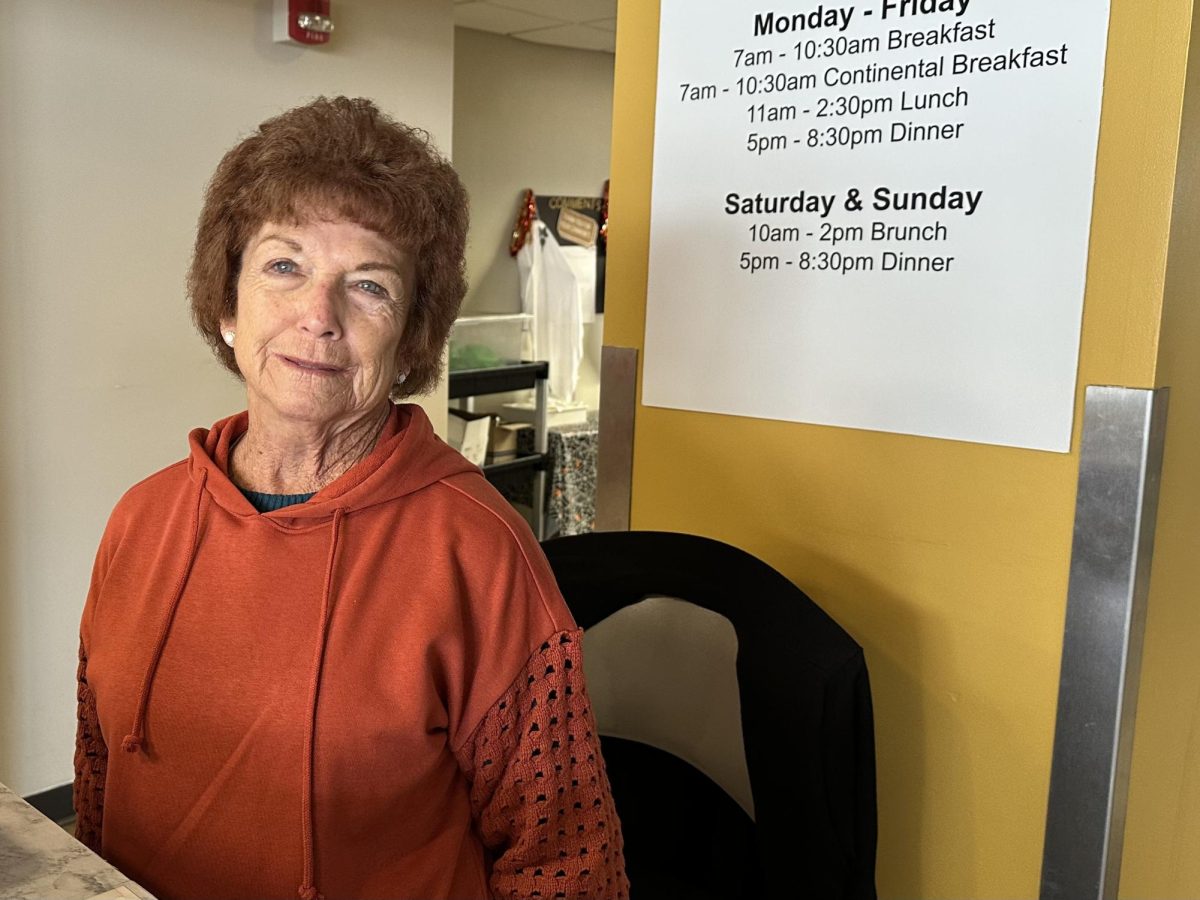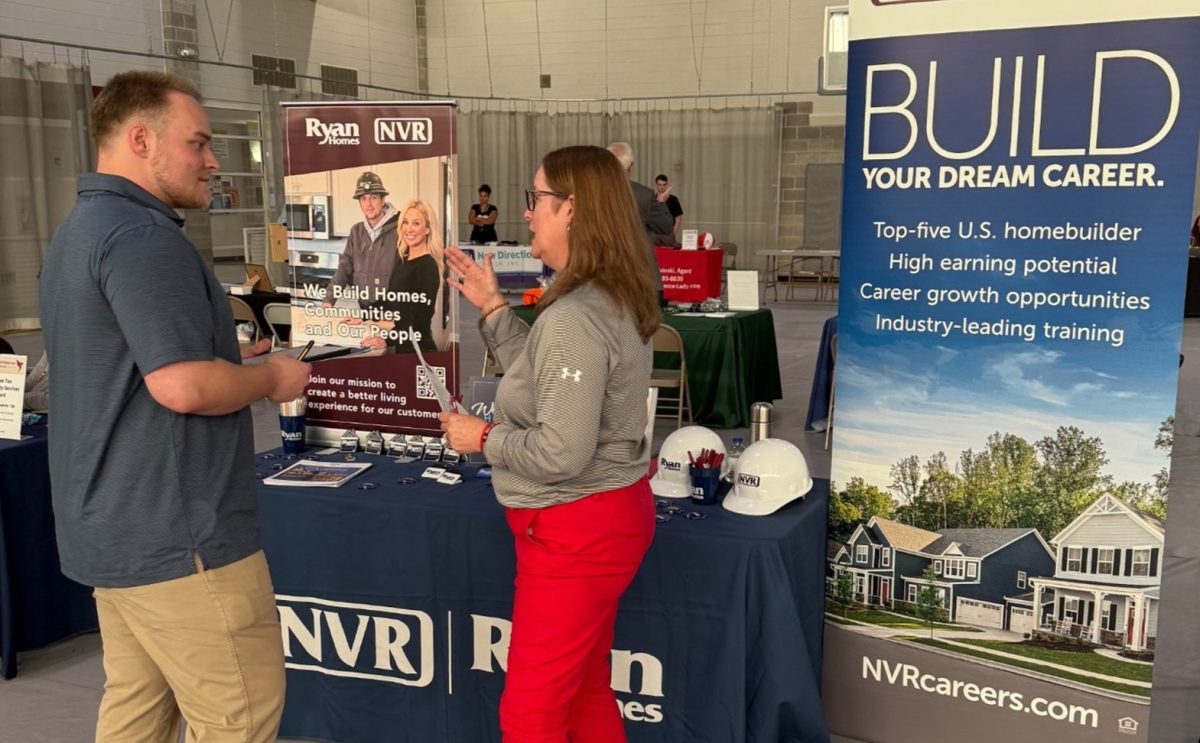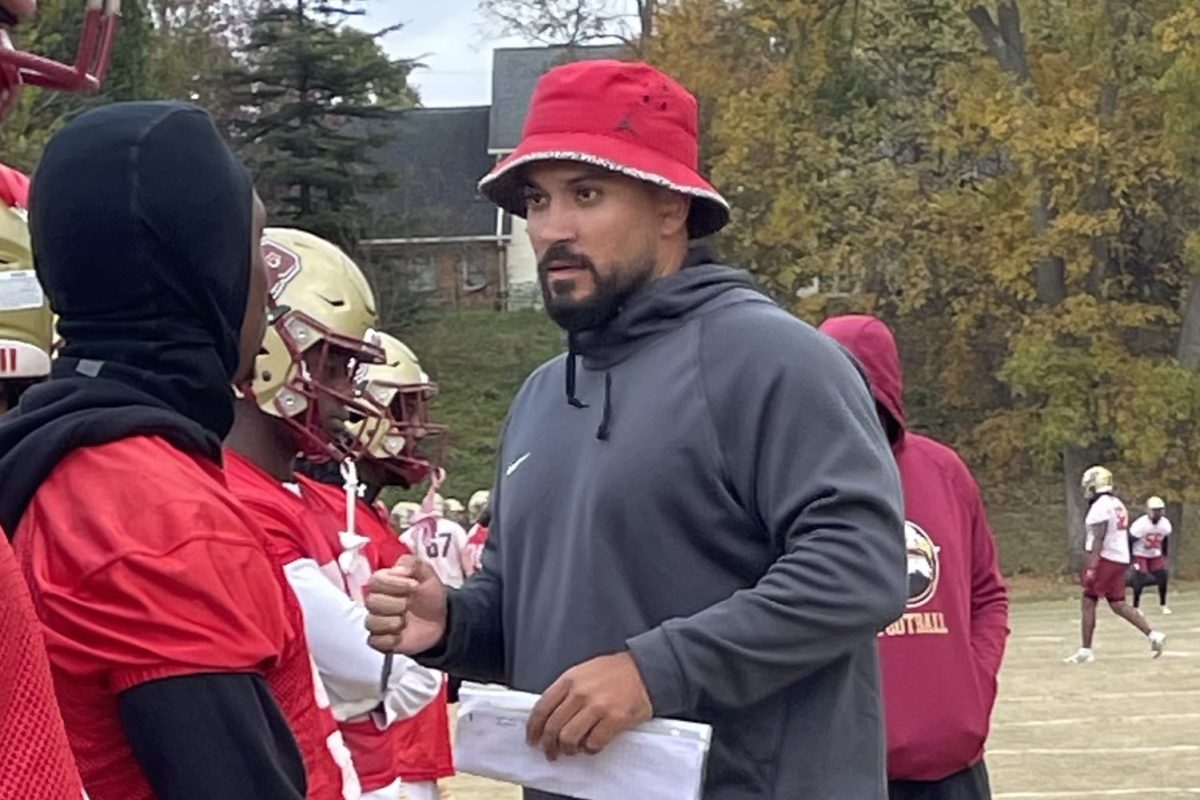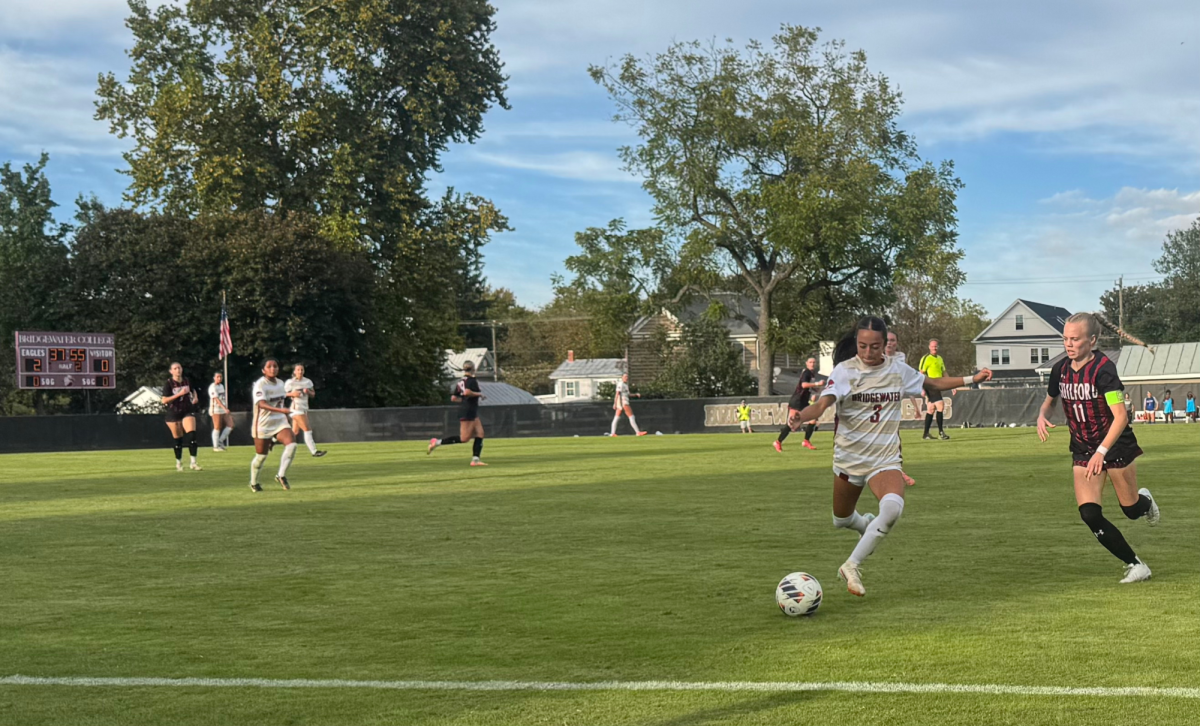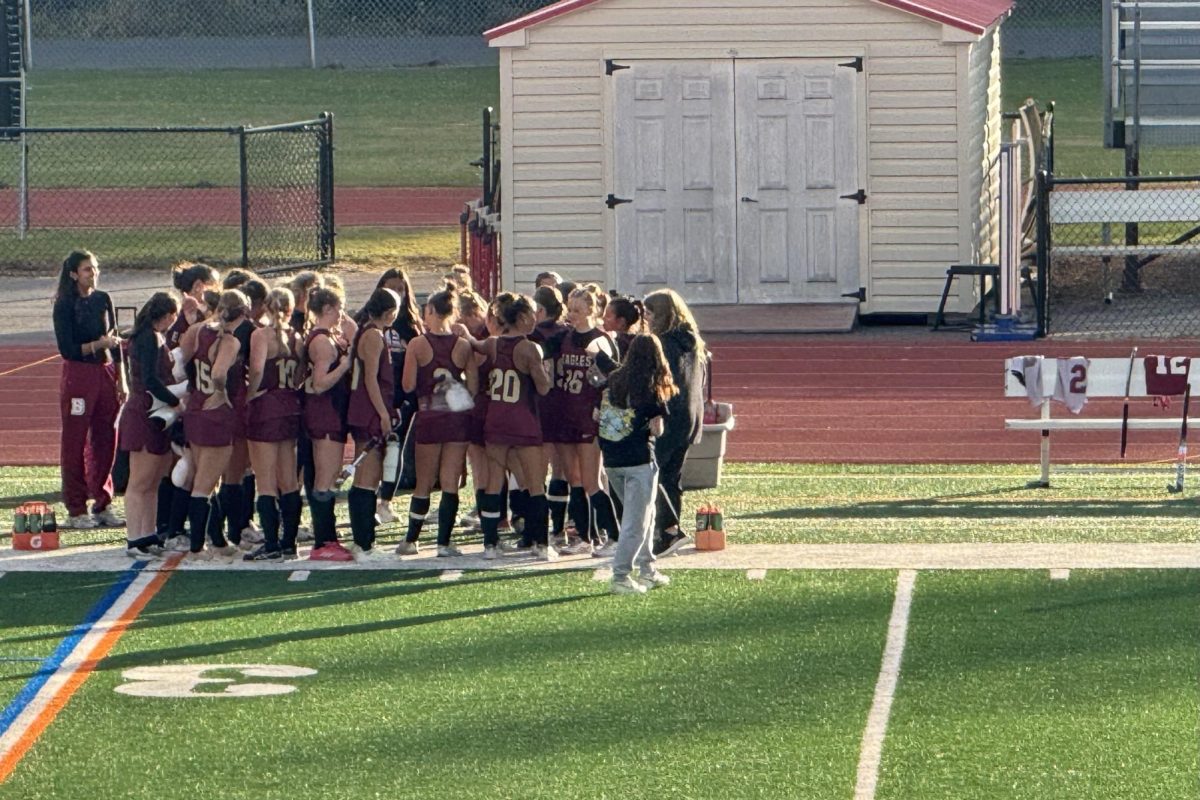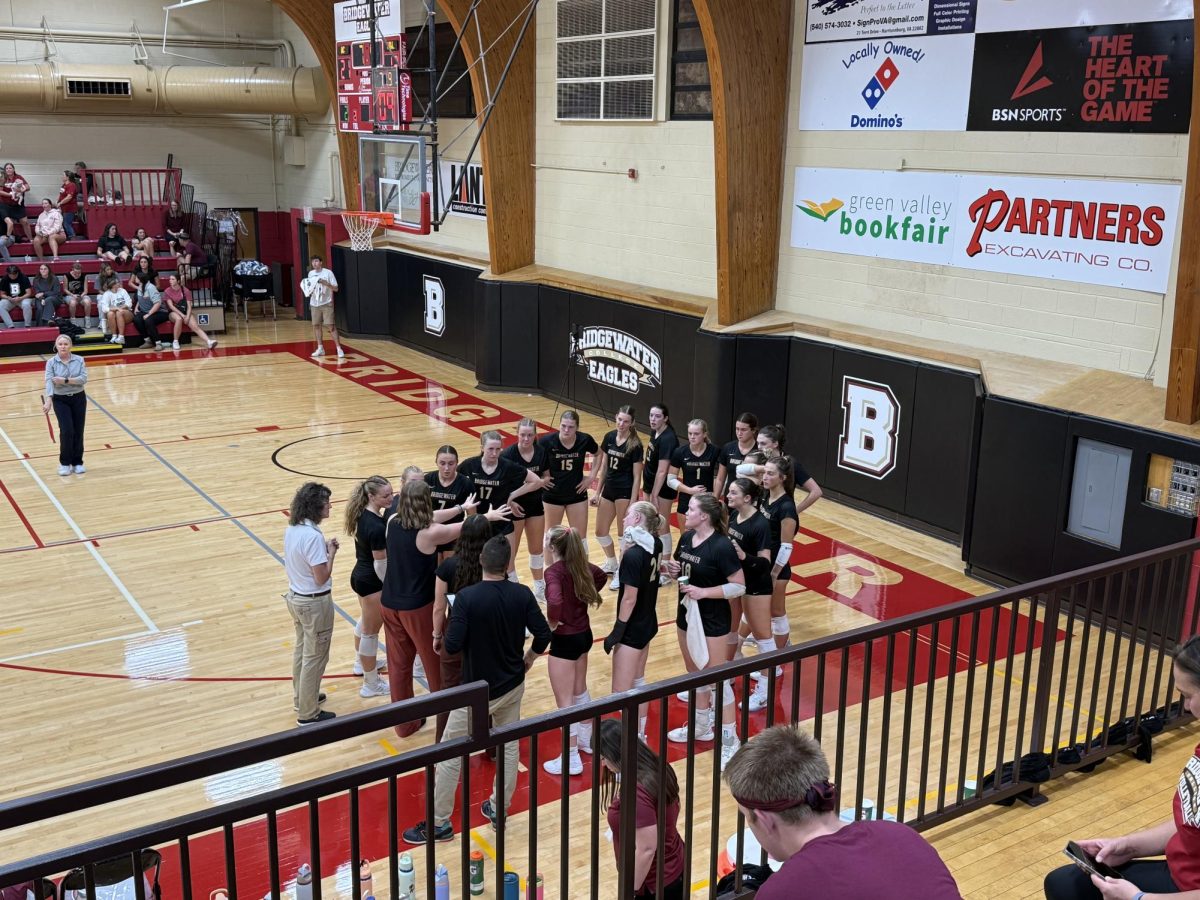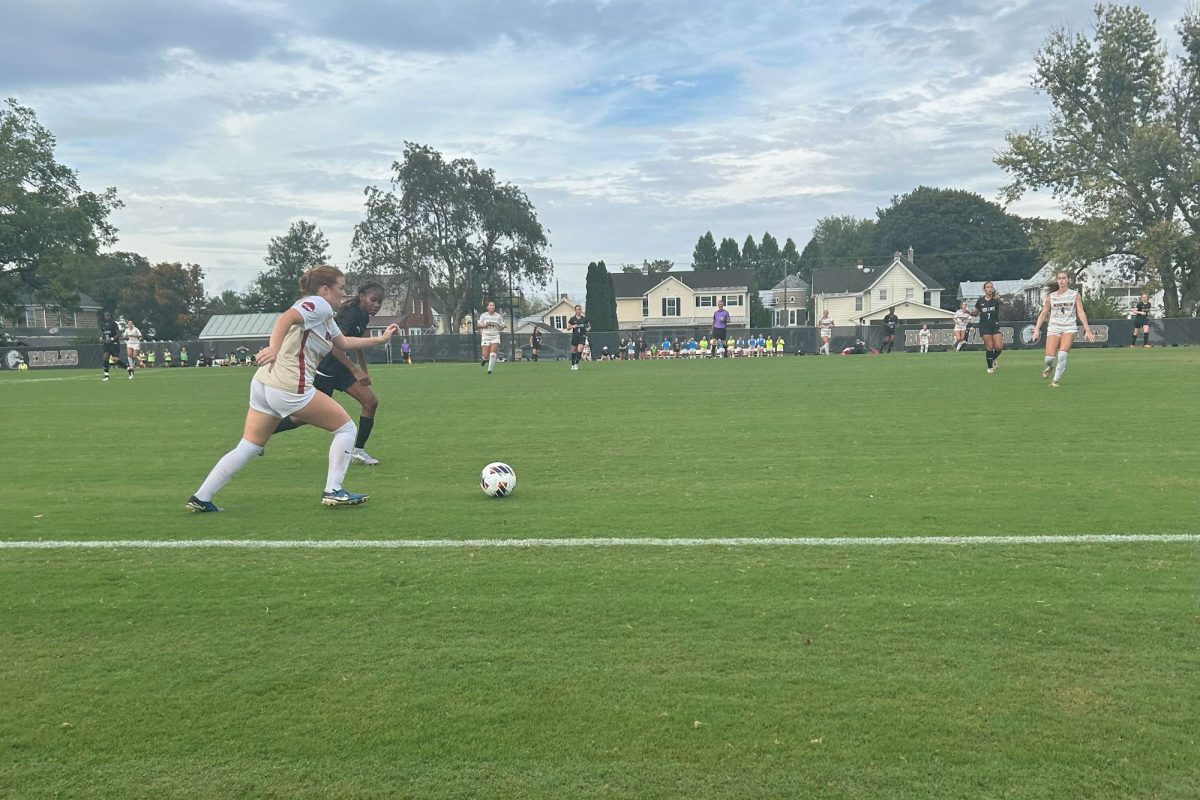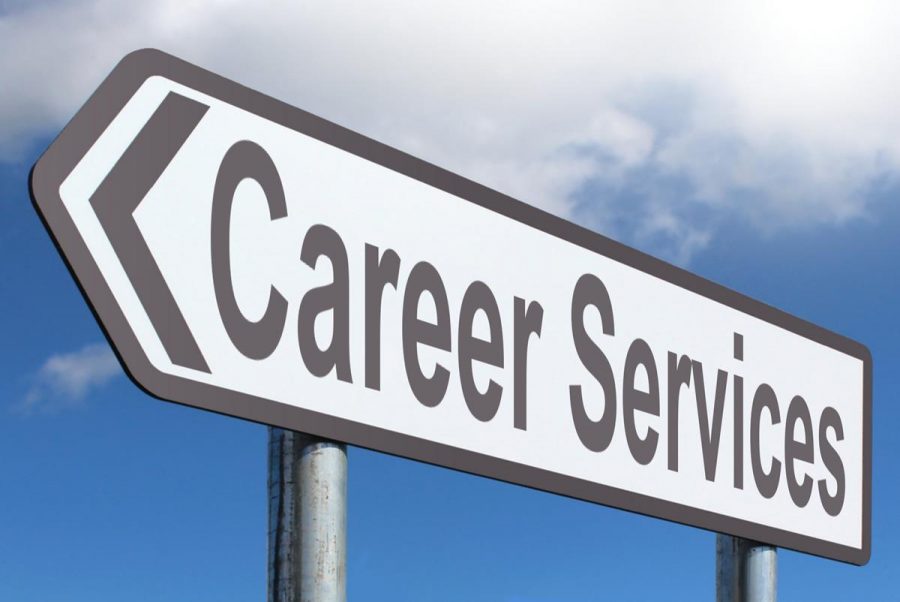Happenings in Career Services
Podcast
November 21, 2019
Director of Bridgewater College Career Services Sherry Talbott gives updates on job hunting, tips and other things BC students need to know.
Music by Texasradiofish
In her second podcast, Sherry focuses on the relocation to the Forrer Learning Commons, tips for ending the semester, and advice for all past, present, and future Bridgewater College students.
Recorded Nov. 21, 2019
- Or listen to on YouTube
In her first podcast, Sherry explains her job at Bridgewater College, along with describing the opportunities she provides for students. Talbott provides helpful tips, advice and concerns she’s learned in her time at BC.
Recorded Sept. 10, 2019
Transcript
Hi, I’m Sherry Talbot, director of career services here at Bridgewater College.
[Music]
There are so many things that I’d love to talk to you about today, and maybe if this podcast goes well, I can come back and dig a little deeper on some of the issues that are important to you when it comes to preparing for your career, whether you’re planning to go into the job market or grad school or human service work like Peace Corps, I do want to tell you this is my first podcast! I’m very excited about being here. And I hope that the things that I talk about today will be of help to you.
The first thing I want to do, though, is touch base on some misconceptions about the office. I’ve had students who thought that it was only for business majors or that all we do is produce resumé’s or that it’s just for seniors and as they’re getting ready for graduation. But the office is for everyone. It starts as a freshman, and we even work with you through your graduation, and work with you as an alumni—so it is what I consider a lifelong relationship and one I have always enjoyed.
I’ve been here 13 years with the college and there isn’t a day that I haven’t enjoyed what I do, especially when I’m helping students prepare for next steps. So that’s what I consider my job to be, to be a person who can help figure out what kind of things can we do now while you’re here at Bridgewater to make sure that you’re ready for the next steps. Again, whether you want to go into the job market or grad school or you would love to do Peace Corps or AmeriCorps or anything like that.
So I want to tell you a few things that the office does. Some students don’t really realize how extensive the services are. But the first thing we do is, especially when we’re working with freshmen or sophomores, is career exploration and helping you choose a major. So there are lots of people on campus who can help you with deciding these things. And career services is definitely one of those pathways.
In terms of career exploration, I know there are a lot of students who come to campus as what we call “deciding” students, not really knowing exactly what they want to study, but they love Bridgewater or want to come here, and that’s amazing. So with career exploration, we can do assessments. We can figure out where your interests are and do those interests, can they translate into a major? And we also have students who love to study a particular major, but they’re not quite sure what they want to do with it once they graduate. For example, I know students who love history, and they are under the misconception that all they can do is teach with a history degree. But there are just myriads of opportunities for history majors. And I would love to meet any student who would like to figure out what could those pathways be with a particular major one that the person loves to study and wants to go forward after that. So choosing a major career exploration, also one on one career guidance.
So we help in coaching you figuring out what kind of things should you be doing while you’re here at Bridgewater to help you prepare for those next steps? Or you might have a particular concern. For example, a lot of students are concerned: Are they, do they, have the right balance here? Are they involved in enough clubs or are they involved in too many? Are they taking advantage of everything they can take advantage of while they’re here? So that’s another thing that we help with, is we can sit down and talk one-on-one. And I would love to hear all about your goals and dreams and how can career services help you achieve those goals?
Another thing we do—and I know we’re pretty well-known for this—is helping you define internships. This is a really important piece of your education. Internships are opportunities to take what you learned in class and apply them in the outside world, apply them in a practical situation. And this is great because employers and grad school reps love to see that you took what you learned in class and tried it out in a practical situation. Internships are great too, because they give you a chance to explore different areas of interest. Sometimes they even are a factor in determining whether you really want to go into this field or not. So internships are terrific.
And as a matter of fact, once an employer looks at your resumé and they see that you graduated from college, well, they give you a big checkmark for that. And then the next thing they look for is how did you take what you learned and applied it? How did you experience the world around you? How did you connect with people? And so the trend is actually to do more than one internship, so I recommend that students start with an internship and then maybe do one, two or even three more so you can do as many as you want in different aspects.
And internships are also a little misunderstood in that you don’t have to find a company that has an internship program. You can actually build an internship anywhere, there’s a company that does what you want to do and they’re willing to take you on as an intern. So sometimes that process can be a little challenging and that’s why career services is here to help with every step of that way. You can do internships locally. You can do internships here on campus. You can do internships in the summer while you’re back at home. You can do internships nationally. We’ve had students do internships with the Disney program, the FBI just all sorts of different organizations that can be [umm] have a, have a heavy impact if you’re interested in going back home after you graduate from college. It’s also a great idea to perform internships in your hometown so that you’ve already gotten a hold of well, you’ve already started meeting people who could help you get into your next career position. So internships, fantastic.
I also help you with resumés and cover letters. And this is very important because from a student perspective, well, I should say from an employer perspective, when they look at a student about to graduate from college, they’re not looking for job experience. They’re looking for what did you do with your time when you were here at Bridgewater. So it’s very important that we design your resumé in a way that’s unique to you. And the word “unique” is very important because that’s what employers are looking for. When they look at their resumés, they want to see, well, what are you going to do to bring something unique into their workplace and make it that much better?
So we spend a lot of time on making sure that the resumé looks terrific and that you also understand what cover letters are for and cover letters are introductions. They’re ways that you can express to that employer how you feel about this opportunity, what you know about that employer, and say it in a way that gets them excited, because that’s one of the main elements we want to we want to encourage, is that we want to get that employer excited about you. So we look at your particular experience, your particular knowledge and skills, and create a resumé that again, gets that employer, grad school rep, excited about you.
There are also at least five different kinds of resumé. So that’s going to be important to understand to the resumé that you use for a part time job search is going to be different from the one you use for a job search when you get out of school or from a graduate school resumé or even a federal resumé, which, by the way, a federal resumé can be five pages long. So we’ve always been told it resumés should be one page. And that’s not necessarily true. It depends on what you’re applying to, and what they need to know about you, to make a sound decision about bringing you on board.
Another thing we do: interviewing skills and job search techniques. A lot of students believe that Indeed is the way to go. And sure, Indeed, is a good platform for finding jobs, but it’s actually representing only a fraction of employers that are out there. And in fact, more employers use their own web sites. And so they’re expecting you to find them other than the other way around. So career services can help with teaching you how to find the companies that have the opportunities in which you may be interested and then make connections that way. It’s also a great way, again, to find internships.
Another area where a lot of students don’t realize that with which we help is graduate school exploration and also preparing for it. You should actually start your grad school preparation in the sophomore year. And I know that’s a little surprising to people because sometimes we don’t even know what we want to study yet. But that’s OK. It’s understanding how to start preparing for grad school, understanding how to research grad schools, research programs, understanding what it is that they’re looking for because it’s going to be very different from undergrad. And then what kind of things can you do while you’re here at Bridgewater to prepare for grad school? For example, they’re going to be extremely interested in the research projects that you engage in. What are you researching? And is what you’re researching related to what you want to do in your future?
So there are very deliberate things we can do to really help you connect to the grad school that you’re interested in and start making inroads, start making, start having conversations. Well, before that senior year. And I would love to be there every single step of the way. You also have to take entrance exams. So how do you prepare in that respect? And again, the resumé has to look different from a job search resumé. And there are also things involved like personal statements where you explain to the grad school why you want to go there. What is it that you want to do? Why did you choose that particular program? And how can they help you be successful? So that takes a lot of work and a lot of preparation. And again, we want to be there for you.
There are other things that we do, too. We go on a lot of trips, road trips, such as the Federal Career Expo, where you get to talk directly to representatives of all sorts of branches of the federal government, get an understanding of exactly what they look for, how to apply [and], how to set yourself up for success in getting into federal government. We also go to career fairs and graduate school fairs. And I really recommend that every student take advantage of that opportunity. It’s a great way to practice talking about what it is you want to do. Finding out great information that’s going to help you again, prepare better when you are ready to find that job or to apply to that grad school.
So that’s kind of a nutshell of what we do. We also have great resources online, great resources in the office. So basically, again, anything that career services can do to help you prepare for your next steps. We’re gonna be there. So couple other things I wanted to talk about, too, is the importance of preparation. You know, why do I talk a lot about preparing? And again, when I’m thinking about a student, I’m thinking about what kind of activities can that student do as a freshman, as a sophomore, as a junior, as a senior? And how do those activities and experiences build to the culmination of having that great resumé, great application, great cover letter, great interview. So everything that you do while you’re here at Bridgewater matters everything that you do.
I’m always concerned when I meet a senior, and we start talking about their experiences here at Bridgewater. And they really didn’t do much. They stayed in their room. They kept relationships with their friends from high school, didn’t really do much to branch out and make more friendships. The good news is I don’t run into those students very often. My challenge is actually getting everything to fit on a resumé, which is exciting. But we look at what kind of things have you done as a student here at Bridgewater? That’s going to be transferable, translatable to an employer. So we’re going to look at things like, did you take on leadership roles while you were here? What does your research look like? Did you gear that research toward your future? The things that you’re interested in, did you do more than just write a paper for a grade? Are you writing that paper as your pathway to your future? Did you engage in things like teamwork skills and working in groups?
I very closely follow the National Association of Colleges and Employers. It’s a fantastic organization that is solely dedicated to getting our students in to great relationships with businesses. And what they did recently was poll thousands of employers to see what is it that they’re looking for when a student comes out of college. And here’s what they said. They’re looking for critical thinking skills. They’re looking for oral and written communication. They’re looking for teamwork, digital technology, professionalism, cultural fluency. So they’re looking for a whole lot of things that don’t translate to maybe what you studied in class. While that’s important. They’re also looking at how did you engage with the world? So I want to help every student be able to translate that. For example, if you’re a member of a sports team, that is a fantastic way to demonstrate leadership or teamwork or critical thinking, quick thinking. So I want to help you translate your story.
And the next thing I’d like to mention is how important telling your story is. In fact, it wasn’t that long ago that I was at Christopher Newport University, and I was at—it was called—a best practice for employers’ workshop. And I was sitting down with a group of employers and we asked them directly: What do they see as the weakest aspect of hiring our new graduates? And hands down the answer was that they wished that students knew better how to tell their own story, and that means concentrating on their specific accomplishments and how they relate them to the job to which they’re being considered.
So that’s one thing that I love to work with students in developing is what did you do while you’re here and how can we really make that a wonderful story that’s going to again, get that employer excited? So that’s an area that you’ll see be talk about a lot this year over the year. And when I talk to you personally, what we’re trying to do is develop that story.
So there are a few things going on right now with the office. That’s very exciting. Many of you may already know that we are going to move the office to the Forrer Learning Commons and that’s going to open up in a month or two here. So we’re really excited about that. A lot of you may not even know where the office is located now, it is in Flory, and it is on a what we call the garden level. So I’m looking forward to being in the space like the Learning Commons, where I’ll be able to engage with students a lot more. The space is amazing. We’re gonna be much, much more accessible. The room we’ll we have—we have access to great spaces like a room that’s specifically designed for electronic and media presentations, and that’s going to be amazing when we work on interviews. There are going to be great spaces for having employers come and talk one-on-one with you, alumni visiting holding impromptu workshops. And we’re also a stone’s throw away from the new cafe. So that means casual conversations over mocha latte, [laughter] so I’m really excited about that.
And we’re also going to be in a suite called the Morgridge Center for Collaborative Learning, and we will be housed with the writing and tutor center. So very exciting too, to be able to offer what we kind of consider one-stop-shopping there. And as we’re gearing up for this year, we have our BC gear-up campaign and that’s going on right now. And what that is, is to get you to like and follow the Bridgewater College Office of Career Services through either Facebook, Twitter or Instagram. So we’re on all three. So look around the campus—there are lots of posters, there are flyers all around. And if you sign up for the social media, then we’re gonna put you in a drawing to win $200 in great BC gear from the Spirit store. So be on the lookout for that or email me or whatever, we’ll get it in that contest.
We’re also creating a career services advisory board, a student advisory board and an ambassador corps. And I’m really excited about that because I think hoping we can help each other through students branching out and talking about the great services, the calendar of events, anything that we can offer you. Again, too, to be successful as you’re moving forward. So if this is something you’re interested in being a part of your love career services and you’d love to see us expand and branch out into different territory. I’d love to have you be part of that group.
Also want you to look out for calendar of events. Look for the Eagle Landing for Friday editions of This Week in career services. That’s going to highlight all the information that’s come in through the office. They could be of interest to you, such as job opportunities, internships, scholarships, volunteerism and other information that’s gonna help you gain experience to help you move farther down that career path.
So come see me. I would love to meet with you and hear about your hopes and your dreams and your plans for what you want to do after graduation. You may already have everything in hand. But what I found with most students is that once they tell me what their goals are and their careers are, there’s just one more piece we might be able to add to enhance it and make it a bit better. So I would love to hear your story, I’d love to know what you think about the offices and about services and again, how we can improve your experience, and how I can best help you achieve your goals in your dreams.
[Music]

